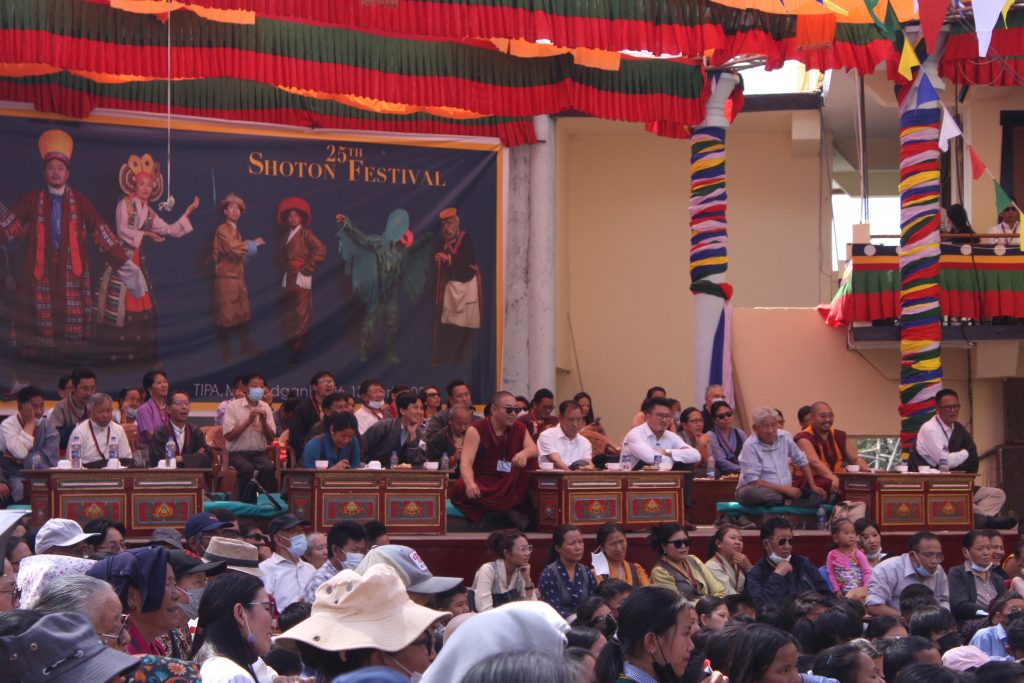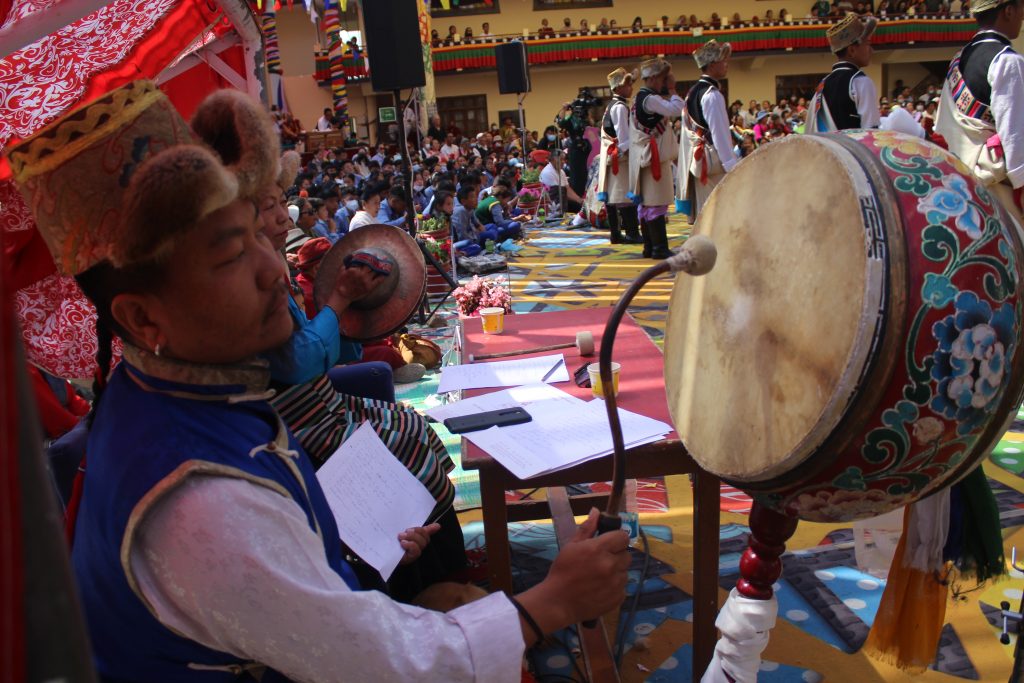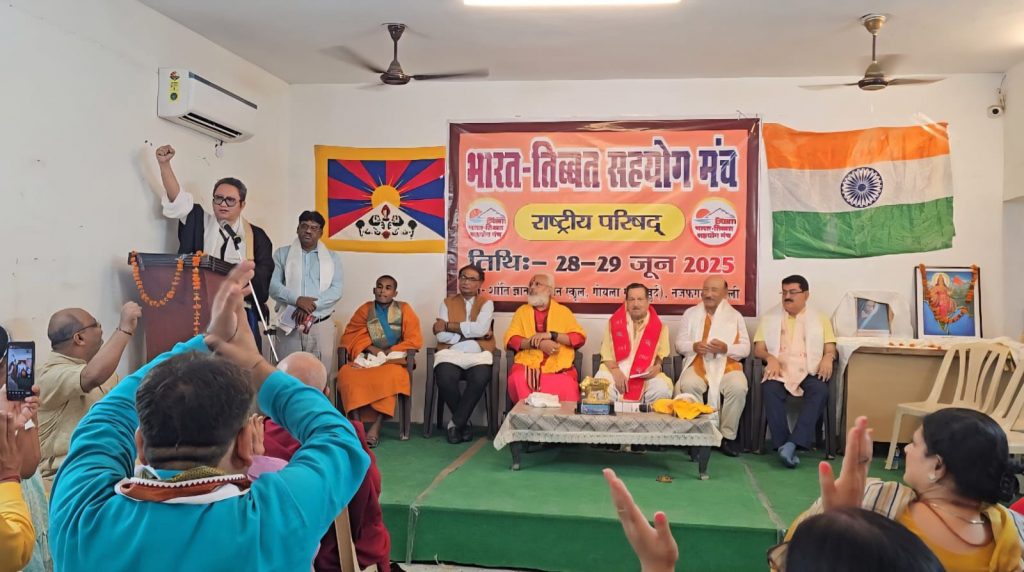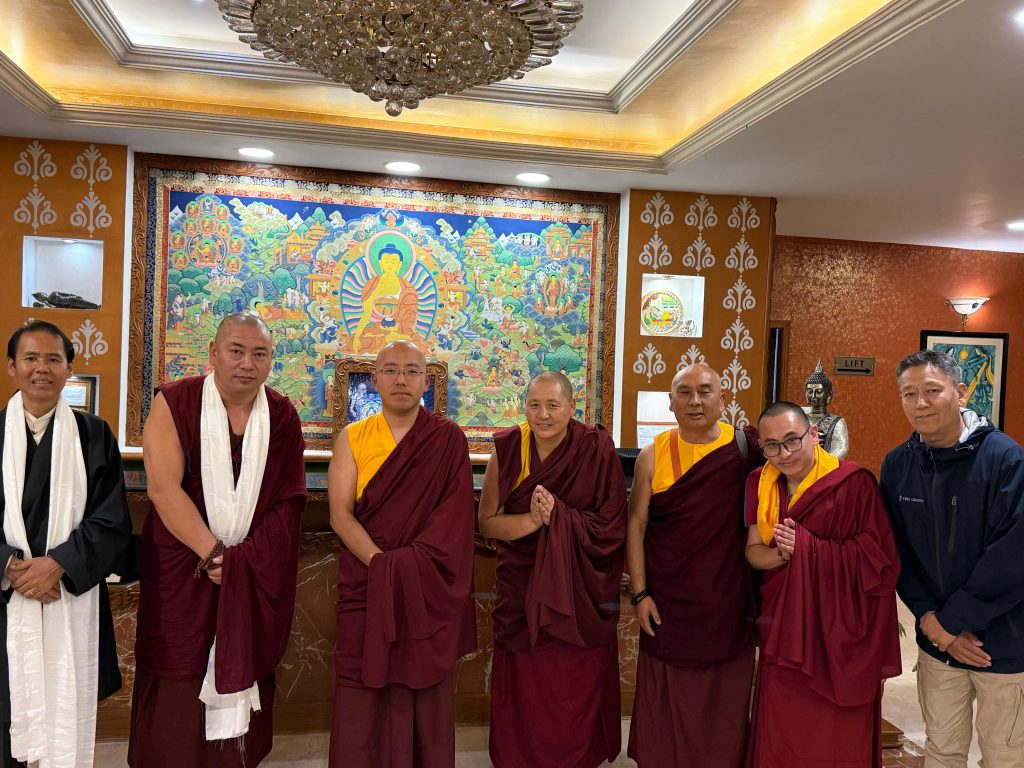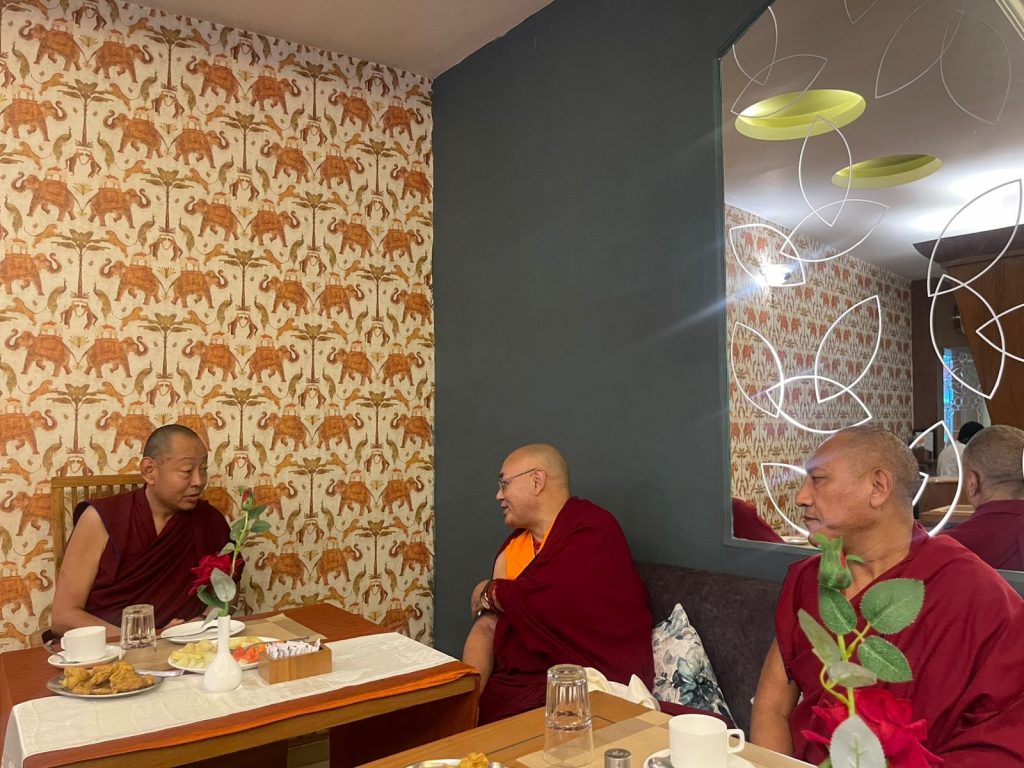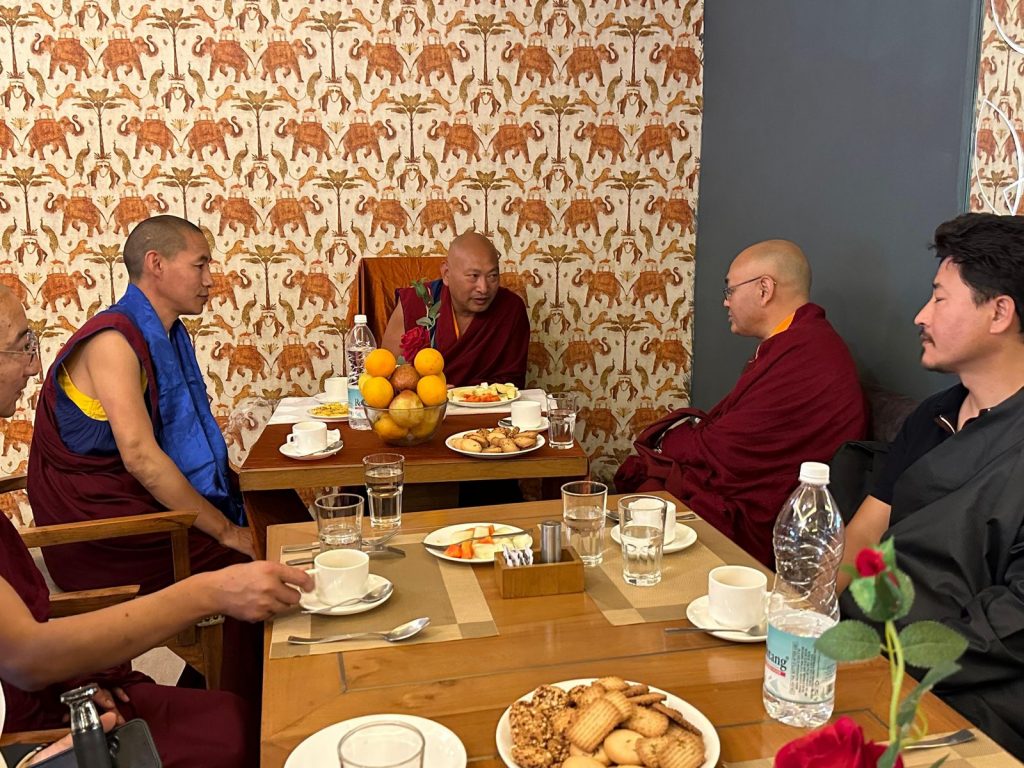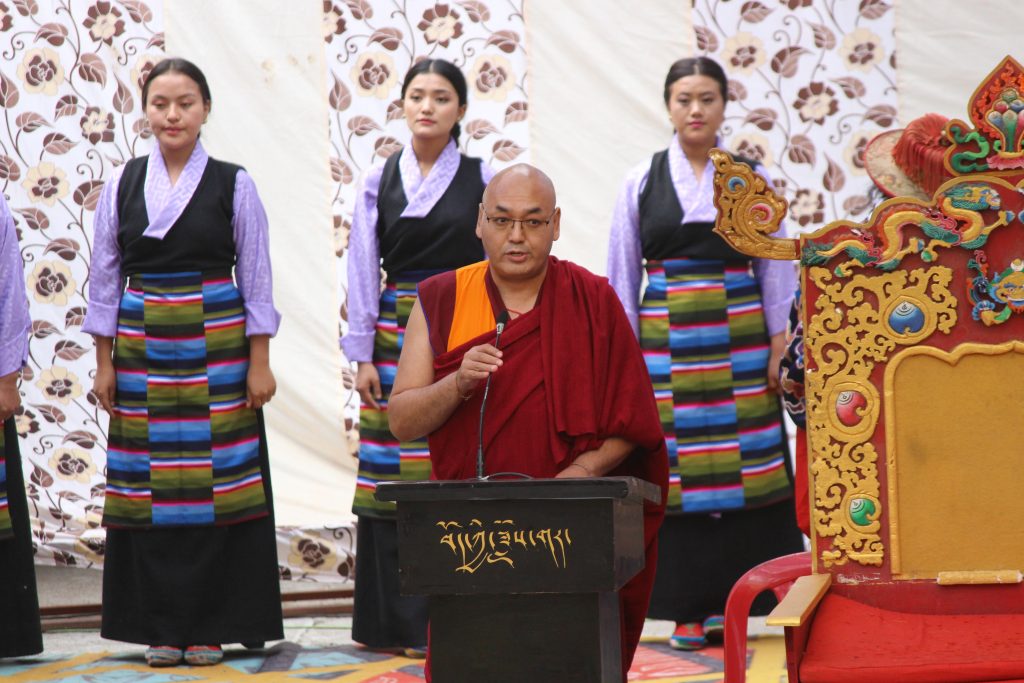
Dharamsala: Khenpo Sonam Tenphel, Speaker of the Tibetan Parliament-in-Exile, graced the closing ceremony of the 25th Shoton (Yogurt) Festival as the Chief Guest along with members of the Standing Committee led by Deputy Speaker Dolma Tsering Teykhang and other Parliamentarians as guests on 13th of April 2022.
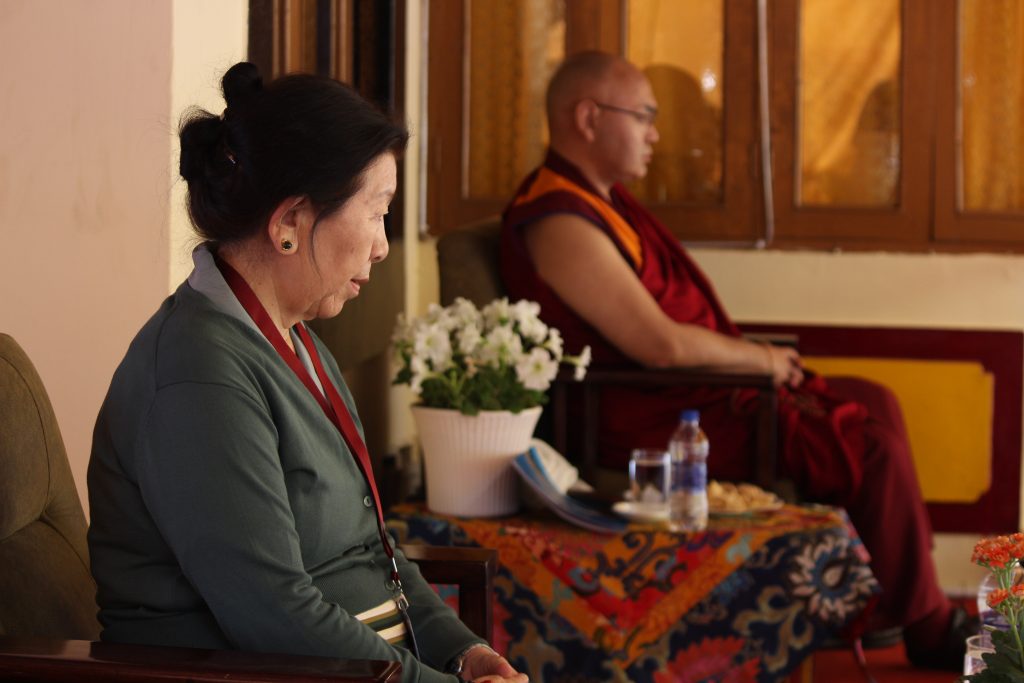
In his keynote address, the Speaker lauded all the eight different opera troupes coming from various places for their dedication in enduring all the hardships of preparing and presenting the unique Tibetan opera. Speaking on the origination of Tibetan opera or Lhamo, the Speaker explained that the folk opera in olden times were performed to raise funds for constructing iron bridges across Tibet under the instruction of the yogi Thangtong Gyalpo, the founder of this tradition, with the pure altruistic intention of helping poor people. He added, “It was during His Holiness the 5th Dalai Lama, the Drepung Shoton or the Yoghurt Festival was revived and evolved. The known eight plays of the Tibetan opera became widespread performances after the 17th century.”
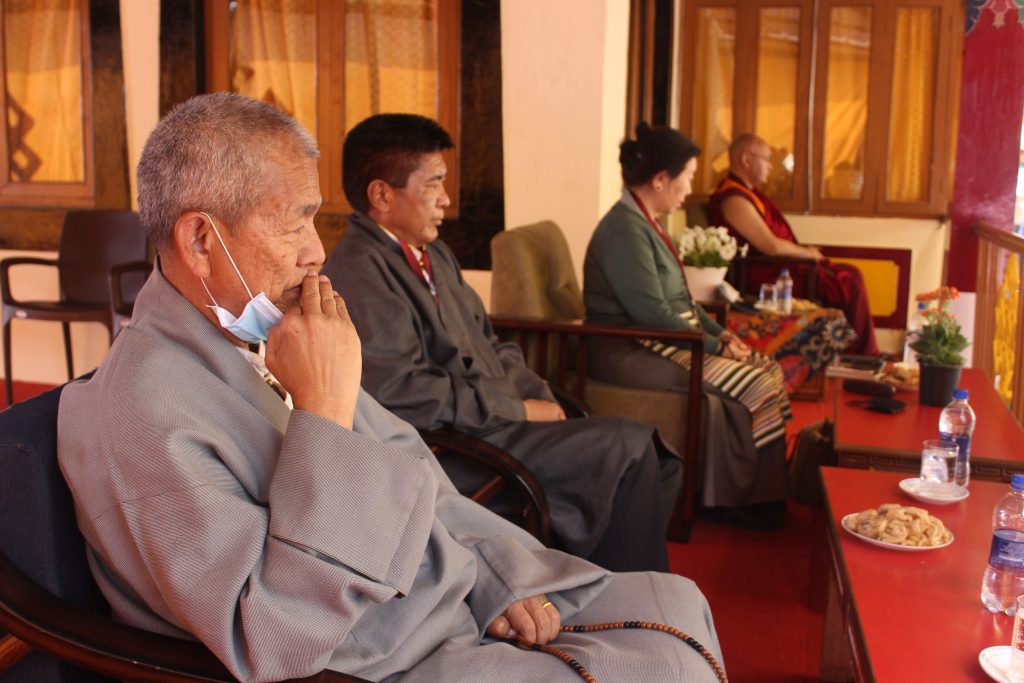
Speaking on how the unique Tibetan culture is being destroyed or sinicized by the Chinese government causing danger to the survival of Tibetan culture in Tibet, he pointed out that it was because of the blessing and advice of His Holiness the Dalai Lama, Tibetans in exile have been able to preserve their culture impeccably. Advising the performers to present and introduce this unique form of Tibetan opera to the world he added, “It is a unique culture which is highly necessary from the point of worldly customs yet it also has the potential to guide us from the spiritual aspect.”
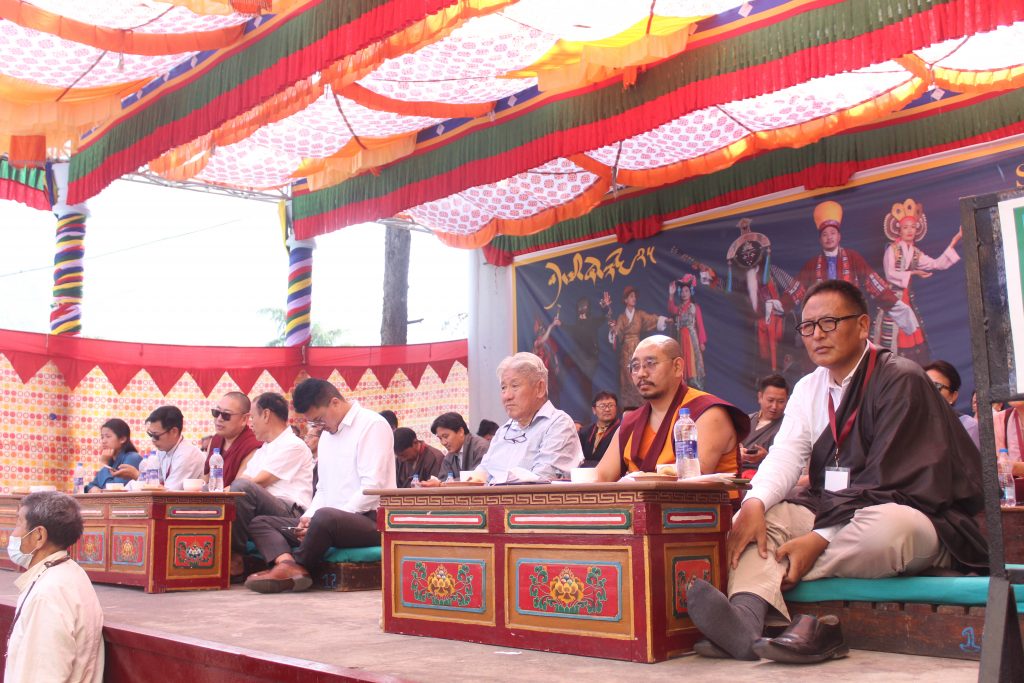
“By the root of this virtue obtained with the performances presented by the 8 different troupes with pure intention, may His Holiness the great 14th Dalai Lama lives for aeons, may all His wishes be fulfilled, and may the issue of Tibet is swiftly resolved,” he concluded.
The Shoton Festival was celebrated from 6th to 13th April of 2022 with performances from eight different opera troupes at the Tibetan Institute of Performing Arts (TIPA).
